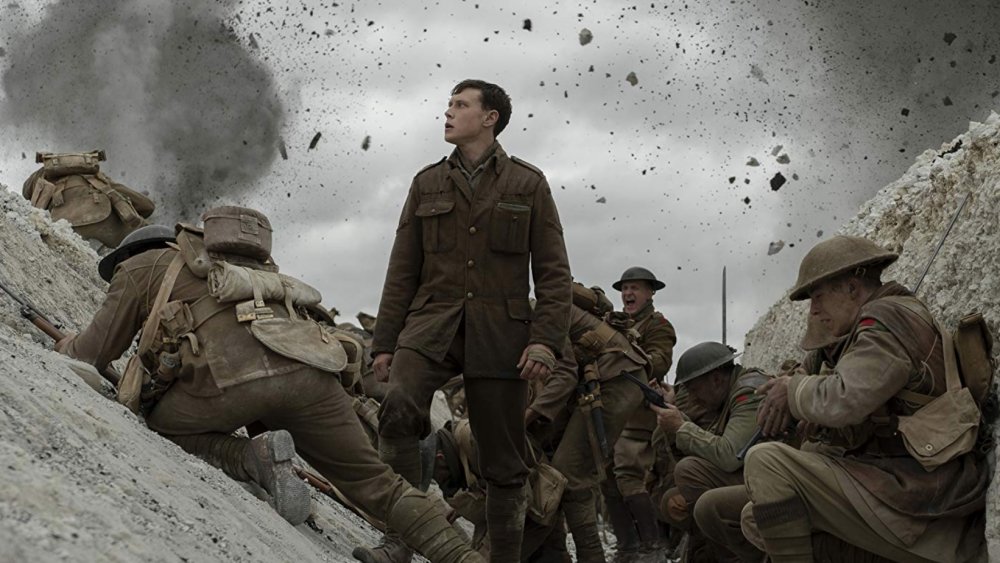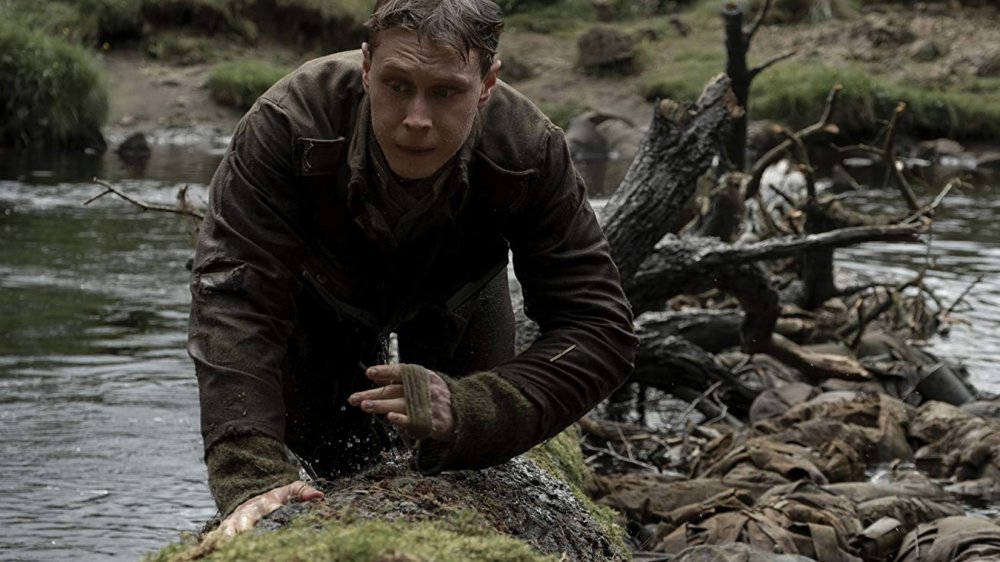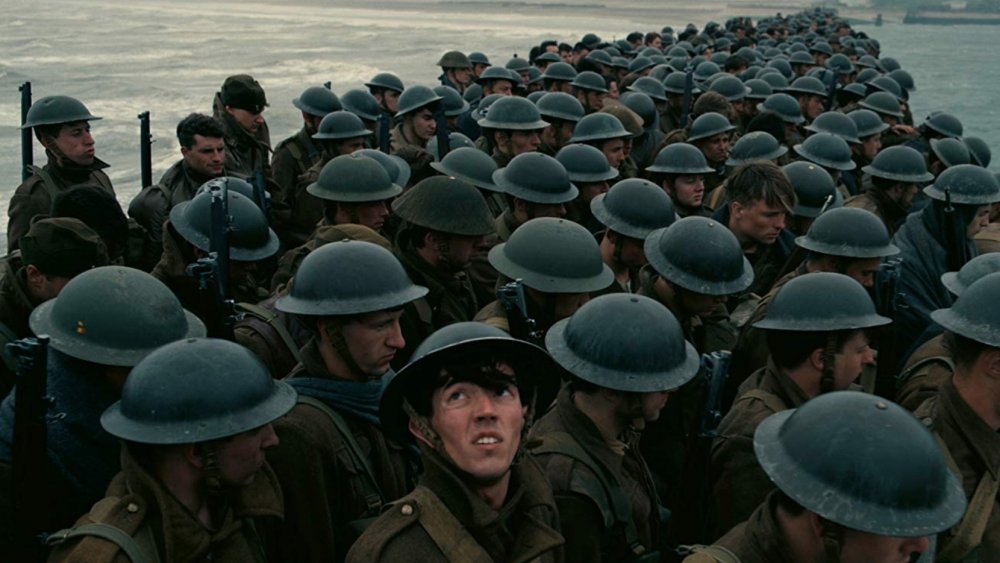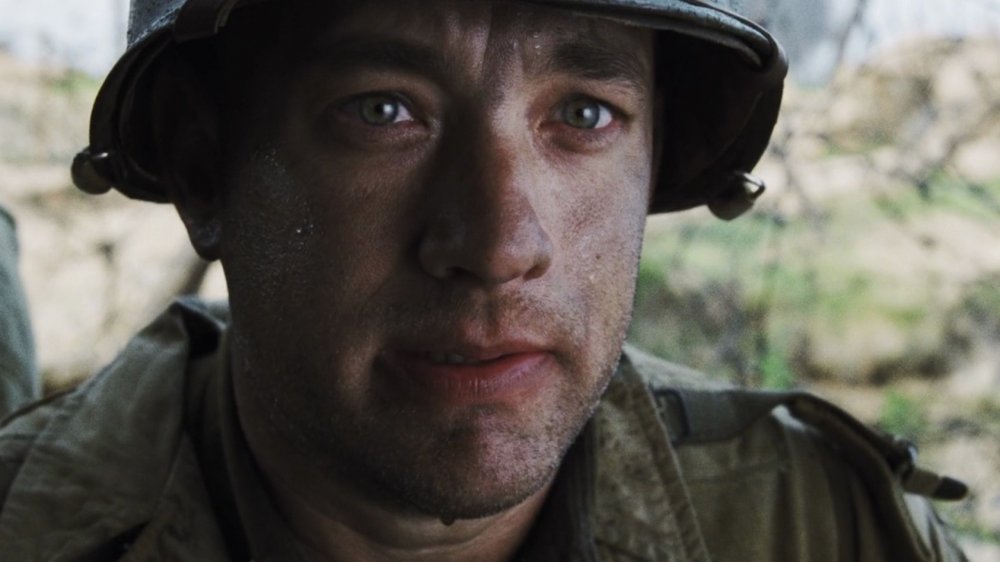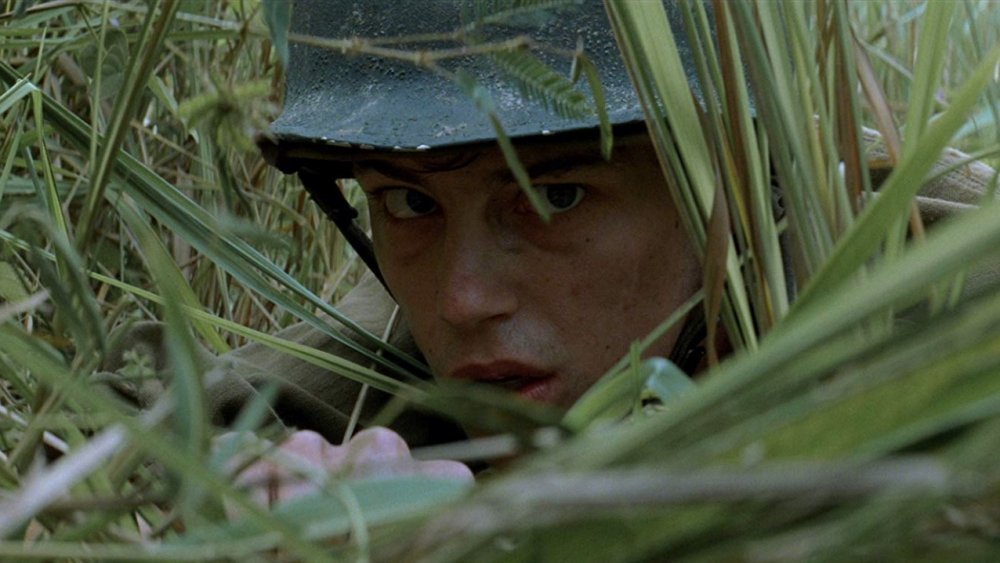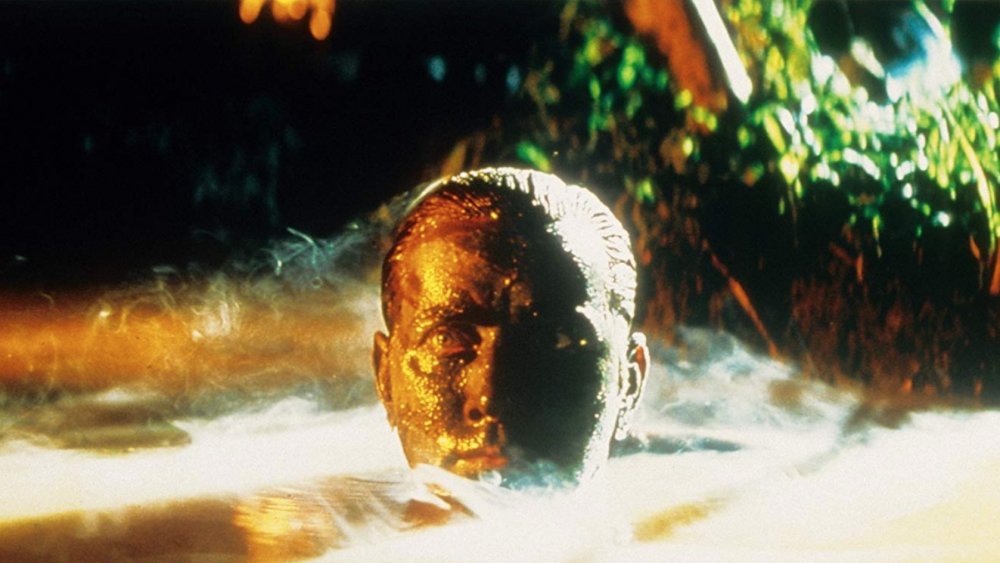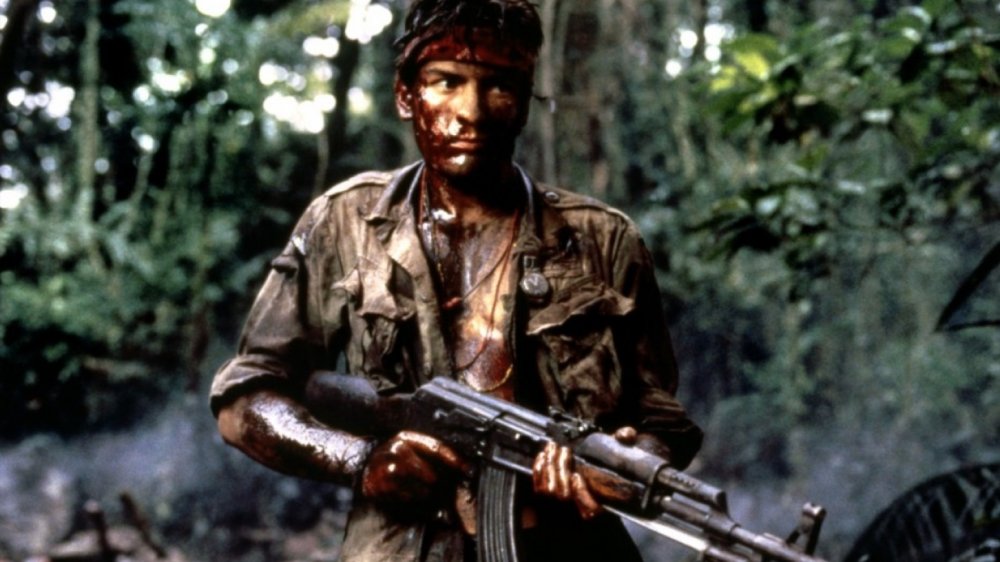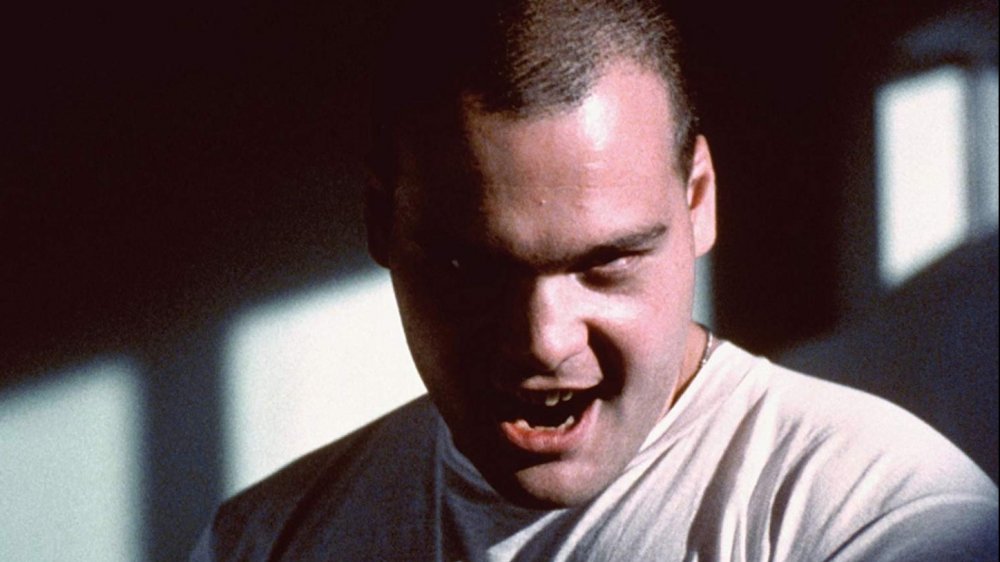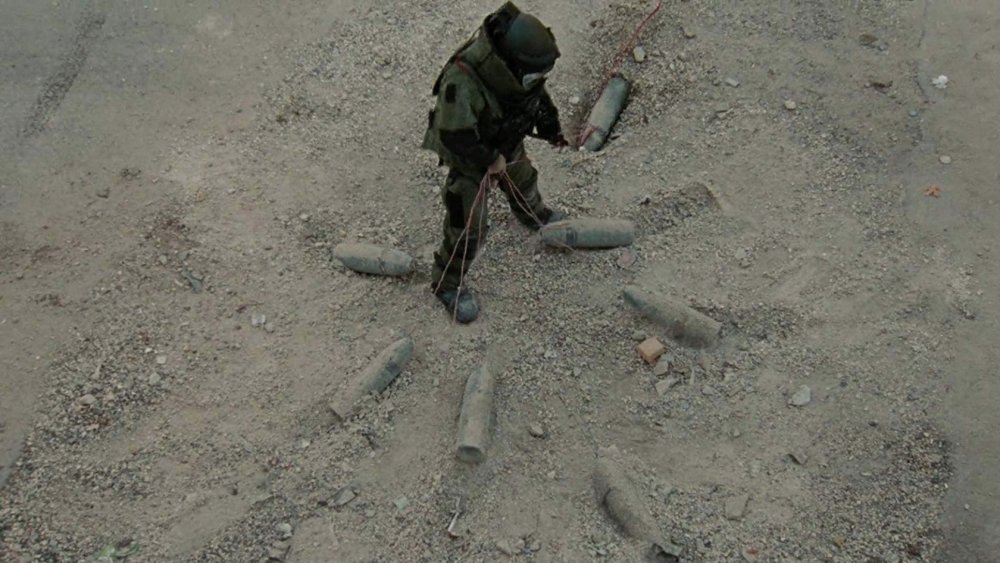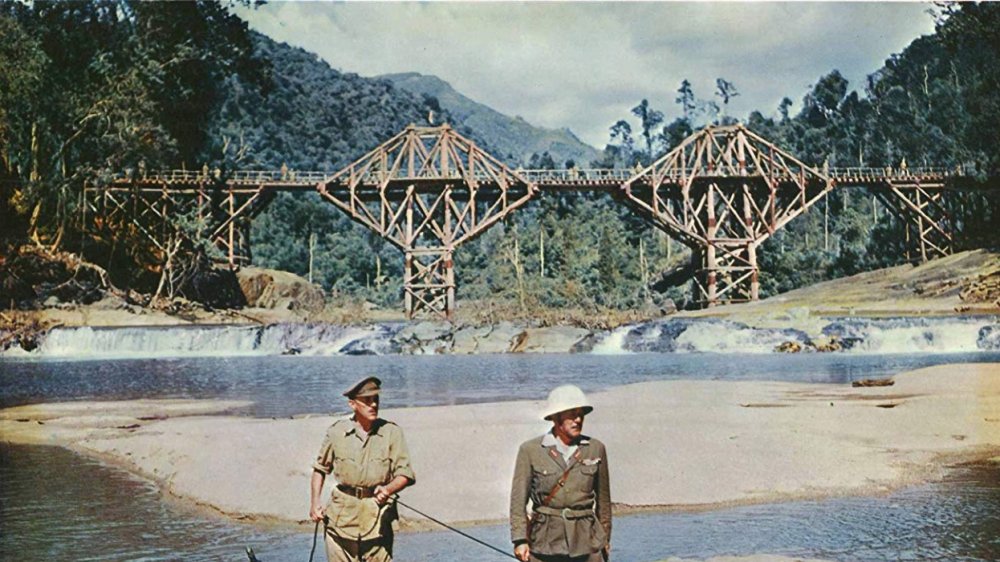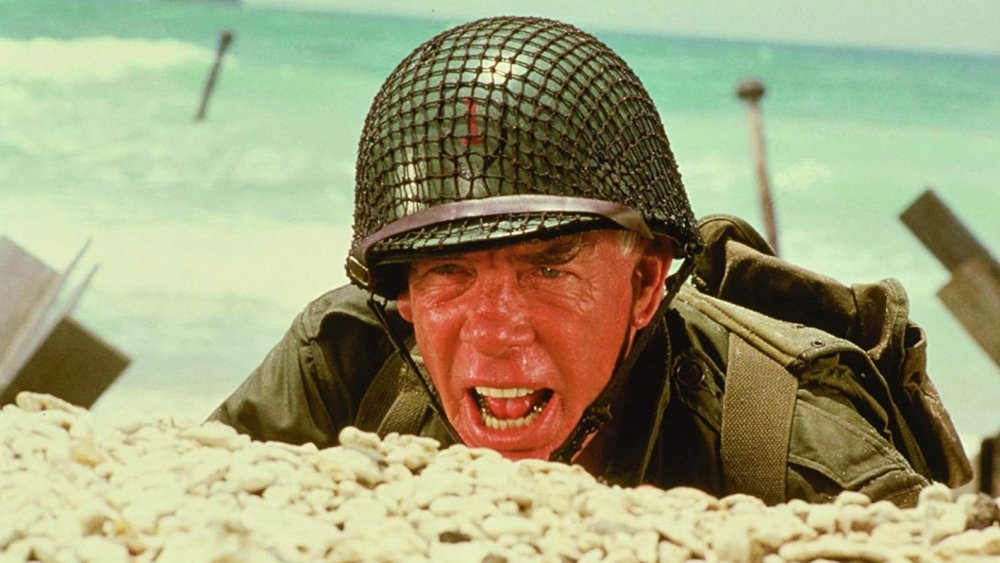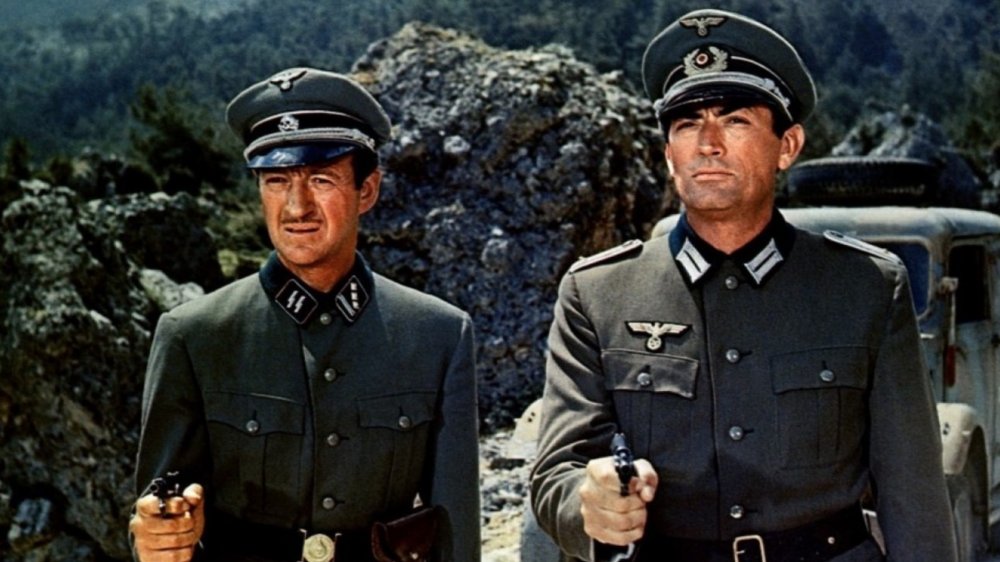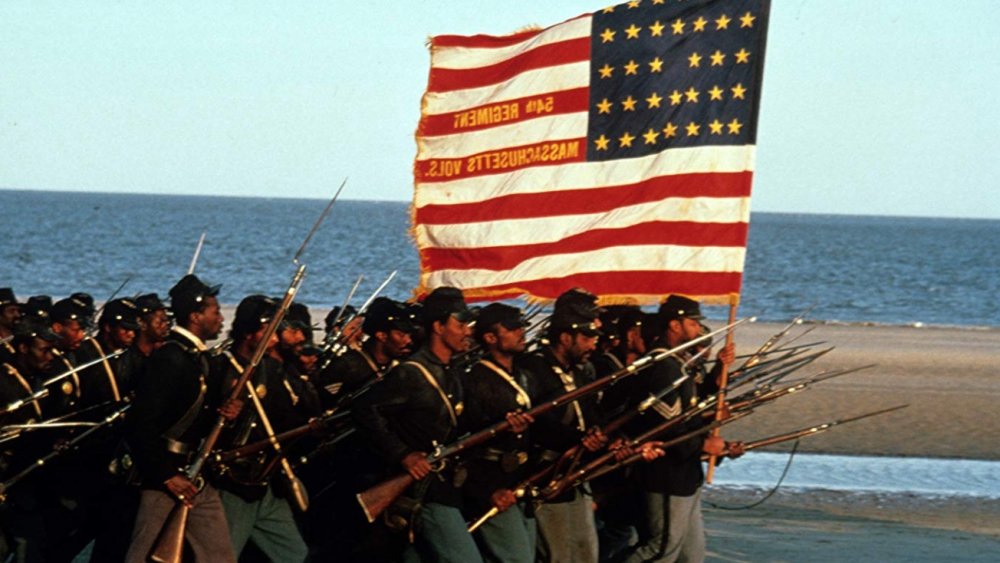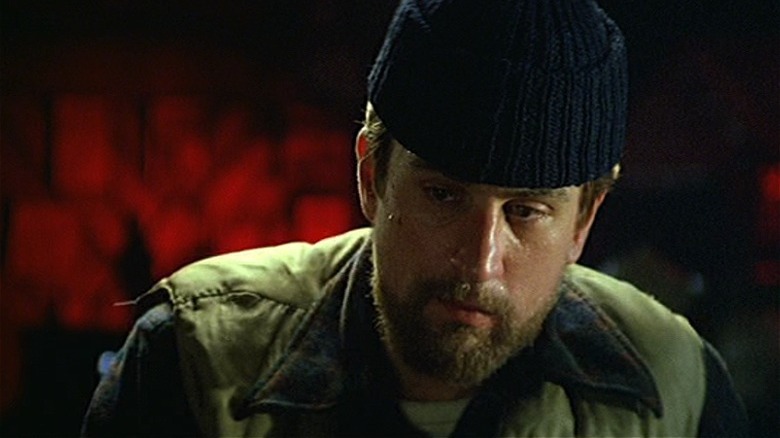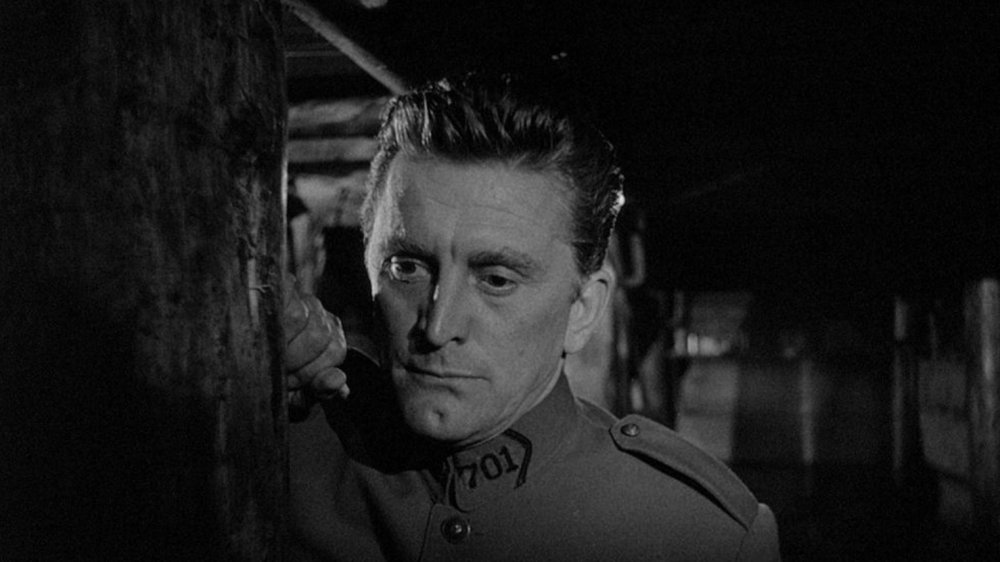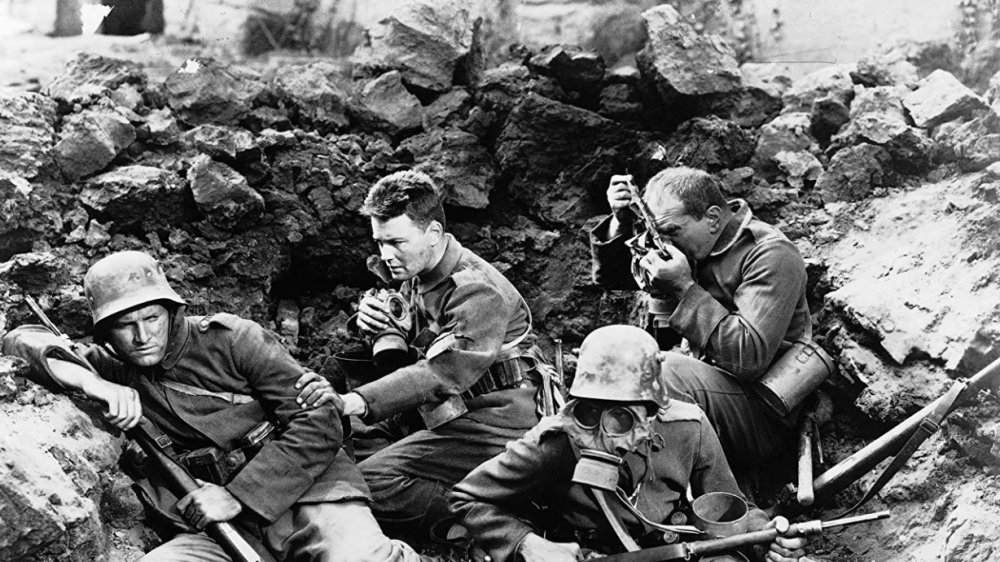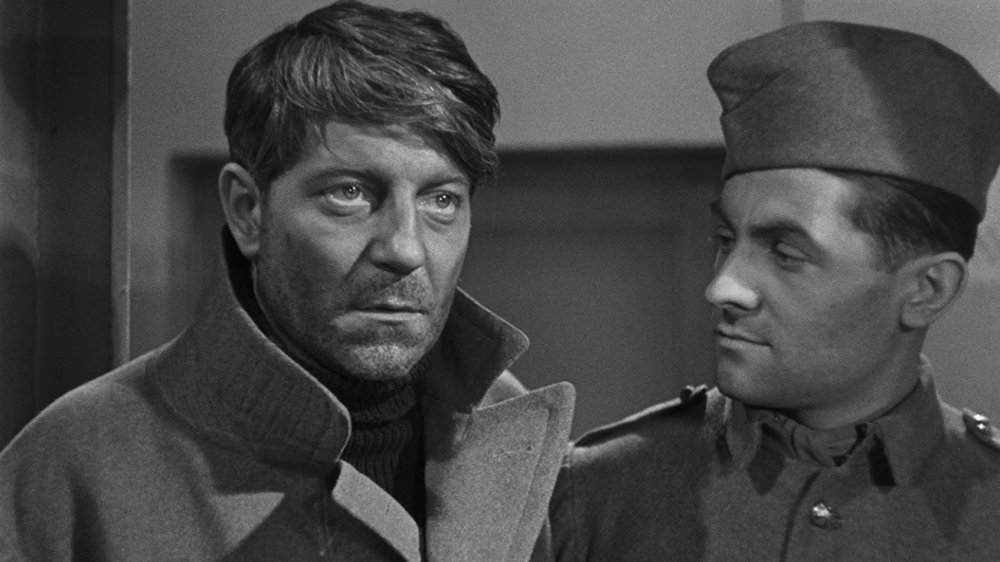The Best War Movies Ever Made
War has been around since the dawn of humankind, so it's no surprise war movies have been around since the movie business began. The commercial film industry was still in its cradle when the U.S. declared war against Spain in 1898. The novelty of recording battles using motion pictures changed war coverage and cinematic storytelling all at once. No longer were outside observers limited to the printed page or static pictures to find out about war — now they could actually see the carnage from the comfort of a darkened movie theater.
War's impact on documentaries was immediate, but soon filmmakers didn't just want to record war; they wanted to recreate it. D.W. Griffith's The Fugitive, about the American Civil War, came out in 1910, and was followed in 1915 by Griffith's Civil War-set The Birth of a Nation. War has been a part of cinema ever since. The films on this list reflect the sensibilities of their filmmakers, the times they were made, and the wars they feature. Some are critical of war's deteriorating effects on a person's soul, while others champion the triumph of the human spirit, which ironically shines brightest when locked in the crucible of combat. What are these films, and what do they tell us about the ancient institution of war and about ourselves? Here are the best war movies ever made.
1917 is a modern masterpiece
1917 was released 102 years after the war it chronicles. Before World War I, or The Great War as it was called at the time, war was confined to tribes, countries and cultures, sometimes many all at once. But in the late 1910s the world truly was at war, with combat stretching across Europe to the Middle East, bringing multiple countries into the conflict. It wasn't just the scope of the Great War, it was the introduction of advanced technology to the front lines, allowing a scale of destruction that was unseen and frankly inconceivable before.
In the midst of such unimaginable cataclysm, a single person feels small and powerless. Sam Mendes powerfully recreates this perspective in 1917, in so doing creating an inspiring tale of heroism while vividly showcasing the horrors of war. 1917 tells the story of two British soldiers who must deliver a message deep within enemy territory that will stop 1,600 men, including one of the soldiers' brothers, from walking into a slaughter. Mendes boldly tells this story in a single long take, a choice that could seem trivial or gimmicky, but in 1917 augments the unceasing horrors and dangers its characters must withstand. 1917 has proved a hit with critics and filmgoers alike, earning a wildly positive Tomatometer score, making $37 million after its nationwide expansion, and winning awards from the Golden Globes, AFI and the Producers Guild of America.
With Dunkirk, Nolan's done it again
Christopher Nolan is one of modern cinema's most celebrated auteurs. After achieving success with in the superhero genre (the Dark Knight trilogy), space epic (Interstellar), and high-concept sci-fi (Inception), Nolan set his sights on one of his biggest challenges.
The Battle of Dunkirk is interesting as the British lost the battle, but inspired the world and saved the war with their successful evacuation of 338,000 troops from the coast of France. What made Dunkirk riskier than Nolan's other films was it had no headline star and the story has largely been forgotten, especially in America (unlike, say, Pearl Harbor). There was also Nolan's unconventional storytelling approach of breaking the narrative into one week, one day and one hour time blocks. Despite this, Warner Bros. had so much confidence in Nolan they gave him $100 million to film his passion project and released it during the summer, a competitive season known for superheroes and franchise epics, not dramatic war movies. The studio knew the draw for this movie was the audience's trust in Nolan and the World War II setting.
True to form, Nolan didn't disappoint. Dunkirk earned a phenomenal Tomatometer score and opened with $50 million, legging it out (in typical Nolan fashion) to $189 million in the U.S. and $526 million worldwide. As an added bonus, Nolan's fellow filmmaker Quentin Tarantino ranked Dunkirk as one of his favorite films of the decade.
Spielberg saves Ryan and brings WWII to life
Steven Spielberg is the top-grossing director of all time and it's not even close. But in the 1990s, the blockbuster director behind Jaws, E.T., Jurassic Park and the Indiana Jones series started to take his career in a different direction. Following his Oscar-winning direction of 1993's Best Picture Schindler's List, Spielberg set his sights on another World War II-era film (following a quick detour for a Jurassic Park sequel).
Saving Private Ryan had an interesting premise: a group of soldiers risk their lives behind enemy lines to save one soldier, whose brothers were killed in combat. It's a classic "men-on-a-mission" setup and a lesser director might have made it an exciting but ultimately forgettable action-adventure film. In Spielberg's hands, Saving Private Ryan forced audiences to look at World War II in a new light. There was still the appropriate reverence for this "just war" against the forces of tyranny, but Spielberg used documentary techniques to bring viewers into the chaos of the conflict, highlighting the soldiers' courage more than any bland hagiography ever could. Critics bestowed Saving Private Ryan with a 93% Tomatometer score and audiences followed suit, with a $217 million domestic, $482 million worldwide take, and making it the highest-grossing film of 1998. Saving Private Ryan also won Spielberg his second Best Director Oscar, though the film famously lost Best Picture to Shakespeare in Love.
Terrence Malick's take on WWII is a winner
The Thin Red Line came out the same year as Saving Private Ryan, but is a very different World War II film. Directed by Terrence Malick, The Thin Red Line is a slow-paced, meditative, and philosophical look at war in general, and World War II in particular. True to Malick's form, there is little-to-no plot in The Thin Red Line, and the action of the conflict frequently takes a backseat to winding, dreamlike detours, which only manages to punctuate the surrounding nightmare. This is a film that takes time to focus on caterpillars crawling on twigs, showing how God's non-human creation is completely oblivious to the carnage that surrounds it, and where the most tragic, heart-rending death scene isn't some heroic sacrifice, but a soldier accidentally pulling the pin on his own grenade while it's still on his belt. Despite an all-star cast that included Nick Nolte, Sean Penn, Woody Harrelson, George Clooney, Adrien Brody, and John Cusack, The Thin Red Line only mustered $36 million domestically, or a little less than what Saving Private Ryan made in one weekend. Critics gave it a respectable Tomatometer score, but that isn't a true representation of just how great The Thin Red Line is.
Apocalypse Now is a story from the heart (of darkness)
Francis Ford Coppola famously boasted: "My film is not about Vietnam. It is Vietnam." Only Coppola in the 1970s could say that, for no filmmaker has had a better run. Coppola could do no wrong during that decade, but his aura of invincibility vanished in the jungles of Vietnam (well, technically, the Philippines). Apocalypse Now's troubled production is an epic story in itself, with tales of Coppola losing original director George Lucas to a galaxy far, far away, dealing with an obese Marlon Brando, budget overruns, tempestuous weather, and even star Martin Sheen suffering a heart attack. With all of this behind-the-scenes drama, the biggest victim has been the film itself, a certifiable masterpiece that has been overshadowed by its own legend.
Coppola's quote is on point: by placing Joseph Conrad's Heart of Darkness in the Vietnam War, Apocalypse Now is less a story about the war, than a visual metaphor for the war. It is haunting, hallucinatory, ambitious storytelling that is both dreamlike and nightmare-inducing, conveying not just the horror of this particular war, but of man's primitive and seemingly permanent inhumanity to his fellow man. Apocalypse Now boasts an incredible 98% Tomatometer score and earned a respectable $91 million worldwide gross — Coppola's career hasn't reached the same heights since.
Oliver Stone brings his war experiences to life in Platoon
Before he courted controversy as the writer of Scarface and the director of JFK and Natural Born Killers, Oliver Stone was a Yale dropout, failed novelist, and directionless baby boomer trying to find his place in the world during the 1960s. Stone's journey took him to the U.S. Army and ultimately to the jungles of Vietnam. Stone said he joined because he "thought war was it; it was the most difficult thing a young man could go through... It was a rite of passage." He was awarded a Bronze Star and Purple Heart for his service, but left the military more directionless than he went in. He used his GI Bill to study at New York University under Martin Scorsese, and broke into Hollywood soon after as a screenwriter. It wasn't until 1986 that Stone committed his combat experience to celluloid with Platoon.
Platoon is about a young soldier (played by Charlie Sheen, son of Martin Sheen, who played Capt. Willard in Apocalypse Now seven years earlier), who must confront not only the Viet Cong, but the moral corruption of the sadistic Sgt. Barnes, played by Tom Berenger. It's a no-holds-barred, harrowing war film that was inspired by Stone's own personal experience. Critics gave it an impressive 88% Tomatometer score, it earned an incredible $138 million domestic on a $6 million budget, and took home Oscars for Best Picture and Best Director for Oliver Stone.
Kubrick takes on 'Nam in Full Metal Jacket
Stanley Kubrick tackled war many times in his career: in sword-and-sandal epics (Spartacus), meditative anti-war dramas (Paths of Glory), and even absurdist satire (Dr. Strangelove). In the late 1980s he turned his singular storytelling style toward the Vietnam war with Full Metal Jacket.
On the spectrum of Vietnam movies, where Apocalypse Now is surrealistic and Platoon is realistic, Full Metal Jacket falls somewhere in the middle. Coupled with Kubrick's darkly comic sensibilities, the result is a film that transcends its familiar trappings. Based on the novel The Short-Timers by Gustav Hasford, Full Metal Jacket charts a U.S. Marine's journey from dehumanizing training in bootcamp to the bloody and brutal war zone. Despite featuring memorable turns by Matthew Modine and Vincent D'Onofrio, Full Metal Jacket's most memorable performance comes from real-life drill instructor R. Lee Ermey, who before he became a caricature of himself was truly terrifying Gny. Sgt. Hartman. While Full Metal Jacket doesn't rank among Kubrick's best (this is the guy behind 2001: A Space Odyssey, after all), its 91% Tomatometer ranking makes it a standout among war films.
The Hurt Locker creates suspense and makes history
The Hurt Locker is less a "war movie" and more a suspense film that wears your nerves raw over its 131-minute runtime. "The Master of Suspense" Alfred Hitchcock famously defined suspense in his "Bomb Theory," in which he describes a scene where the audience knows a bomb is about to go off, but the characters don't. Director Kathryn Bigelow clearly took this lesson to heart in her story about an army bomb squad unit during the Iraq War.
Bigelow cut her teeth on action-packed pics like Point Break and brings that same approach to The Hurt Locker, which stands head and shoulders above all other movies about the Iraq War. Unlike other films that came out in the immediate aftermath of the conflict, The Hurt Locker doesn't preach or condemn. Instead, it just tells a simple human story using powerful action filmmaking techniques, with superb performances and direction along the way, to create a visceral, harrowing experience from start to finish. Consequently, it's all the more effective. Critics were impressed too, bestowing The Hurt Locker with an incredible 97% Tomatometer score. More impressively, Kathryn Bigelow became the first woman to win the Best Director Oscar, and to direct the Academy Award winner for Best Picture.
David Lean's epic is a different kind of war movie
Sir David Lean was a master of epic filmmaking, orchestrating massive, 10,000-person casts and mammoth, three-hour runtimes with the ease of directing a three-camera syndicated sitcom. In a career that included some of the biggest movies of all time, The Bridge on the River Kwai is not only one of the biggest, it is also one of his best.
The Bridge on the River Kwai is about British POWs who are forced by their Japanese captors to build a railway across the river Kwai, while Allied forces are meanwhile planning to destroy it. While many war movies focus on the dehumanizing toll of conflict, Kwai takes a different approach, and is instead a character study of a professional soldier whose dedication to his duty proves to be his undoing when he loses sight of the war at large. While William Holden gets top billing, Sir Alec Guinness is the star. Long before he became known to generations as Obi-Wan Kenobi, Guinness was known for his role as Col. Nicholson, the British Officer whose defiant, duty-bound ethic compels him to build an exceptional bridge for his Japanese captors, even though so doing undermines the Allied war effort. Guinness won an Academy Award for Best Actor, while the film won Best Director for David Lean, and Best Picture. Its reputation has not diminished with time, as it currently boasts a 95% Tomatometer score.
The Big Red One is a forgotten great
The Big Red One doesn't get a lot of attention, but with a 90% Tomatometer score it truly is one of the great war movies. The Big Red One is set during World War II, but came out in 1980, when much of the cinematic conversation was still focused on Vietnam. As such it gets lost in the shuffle. In the film, real-life Marine and World War II veteran Lee Marvin (who won a Purple Heart fighting in the Pacific) plays a battle-hardened sergeant who leads his unit in the First Infantry Division from Africa to Europe. It's a simple, perhaps even cliche setup that is elevated to greatness by its performances (including one from a post-Star Wars: A New Hope Mark Hamill), and its direction at the hands of journeyman Samuel Fuller.
The Big Red One is neither a "war is hell" narrative nor a propaganda picture straight out of Hollywood's Golden Age. Rather it's a simple, honest depiction of brave, ordinary people thrust into extraordinary circumstances, who rise to the occasion only thanks to the unity of their brotherhood. In many ways The Big Red One was ahead of its time, and set the stage for later films like Saving Private Ryan and Dunkirk as well as TV shows like Band of Brothers and The Pacific. The film owes its true-to-life depiction to Samuel Fuller's narrative gifts and especially his personal experience fighting in North Africa during World War II.
Guns of Navarone is the best men-on-a-mission war movie
The Guns of Navarone is the best of the bunch among the "men-on-a-mission" subgenre that includes everything from classics like The Dirty Dozen and Where Eagles Dare to kitschy exploitation pics like Surrender – Hell!
In this 1961 British-American co-production, a British team is sent to occupied Greek territory to destroy the massive, ship-destroying German gun emplacement that guards the sea channel. It stars Gregory Peck, David Niven, and Anthony Quinn; if that setup and cast doesn't get your blood boiling, then maybe war movies just aren't for you. Like other films in its genre, The Guns of Navarone isn't interested in asking the big questions, waxing philosophical about man's primal nature, or pausing to reflect on the morality of conflict. This is a simple good vs. evil story in which the Allies must complete a dangerous mission, plus numerous other sub-missions along the way, in order to defeat the bad guys. What elevates it are its character development, exciting plot turns, and epic spectacle. Critics love it to this day, giving it a 95% Tomatometer score, proving that not every war movie belongs in the arthouse. Some just need to tell a simple, solid story well.
This Civil War film led to Oscar Glory for star Denzel Washington
Despite being one of the most consequential conflicts in American history, the American Civil War's big-screen bona fides are spotty. While the Civil War-set The Birth of a Nation changed the face of cinema, its overtly racist story makes it difficult to classify as "great." Other great Civil War films are either set during the war, but not about it (a la Gone With The Wind, whose romanticizing of the slave-owning south is also problematic), or are historical biopics (like Lincoln). Besides Ken Burns' masterful The Civil War documentary, the best of the bunch is Glory.
Glory tells the story of Col. Robert Gould Shaw, who leads the first all-black volunteer company during the Civil War. Besides its stirring, inspiring portrayal of heroism, the film also shows that African-Americans were not only victims of Confederate slavery, but also from racism within their own ranks in the Union Army. Though the visual of Ferris Bueller commanding an Army unit is initially jarring, Matthew Broderick gives a career-best performance as Col. Shaw. That said, Glory belongs to Denzel Washington. His performance as the troubled former slave Pvt. Trip won him his first Oscar. Alas, Glory was not even nominated for Best Picture, which went to Driving Miss Daisy, though it does carry an impressive 93% Tomatometer score.
The Deer Hunter brings the war home
The Deer Hunter stars Robert De Niro, Meryl Streep and Christopher Walken, so with that pedigree alone you know it's going to be good. However, The Deer Hunter is not an easy film to watch, both due to its disturbing imagery and an 183-minute runtime that takes viewers from the steel mills of Pittsburgh to the rural Pennsylvania mountains and the vicious jungles of Vietnam to show how the war destroyed the lives of a group of Russian Americans — both those who fought and the ones they loved back home.
The Deer Hunter is so effective as an anti-war film because so much of it doesn't take place in the war at all. Over the course of its three-hour runtime we see how this hardworking, blue-collar clan goes from an idyllic rural life to the horrors of war — and brings that heartbreak back home. In so doing, we see that war doesn't just affect the people doing the fighting, but both their loved ones and the communities they call home as well. The Deer Hunter was a big winner at the Academy Awards, winning Best Picture, Best Director for Michael Cimino, and Best Supporting Actor for Christopher Walken, as well as scoring nominations for De Niro and Streep. Its brutality hasn't blunted with age, as it still boasts a 94% Tomatometer score.
Paths of Glory is a lesser-known Kubrick classic
Stanley Kubrick's filmography includes remarkably diverse films, many of which are the best in their respective genres: 2001: A Space Odyssey (sci-fi), The Shining (horror), Dr. Strangelove (comedy), A Clockwork Orange (not even sure what genre this falls into), to name a few. With a lineup of this caliber, it's not surprising that less attention has been paid to one of the greatest war films, Kubrick's 1957 opus Paths of Glory. Kirk Douglas plays a commanding officer who must defend his soldiers from a general's accusations of cowardice after they refuse to attack an enemy's position. If that setup sounds dry or boring, the film is anything but. Within its tight 86-minute runtime, it is in part a prosaic, thoughtful meditation on courage and justice in times of combat, as well as a visceral, knockout war film, with protracted, single-shot camera work that predates 1917's one-shot setup by 60 years. With a 95% Tomatometer rating, Paths of Glory is truly a hidden gem not only in Stanley Kubrick's career, but in the war genre overall.
All Quiet still speaks to audiences nearly 100 years later
One of the earliest war movies is also one of the best. Based on the novel by German World War I veteran Erich Maria Remarque, All Quiet on the Western Front follows a group of idealistic young German soldiers whose patriotism is destroyed by the vicious vicissitudes of combat on the western front. Anybody who believes that war movies before Vietnam were blindly patriotic affairs will have their prejudices laid bare by Lewis Milestone's stirring anti-war polemic, anchored by a compelling lead performance by Lew Ayers. The film was one of the earliest recipients at the Academy Awards, winning the Oscar for Best Picture in 1930. All Quiet On The Western Front also boasts an incredible 98% Tomatometer ranking, showing that while it is nearly 100 years old, its unapologetic anti-war sentiment is still as stirring, strident and urgent as the day it was released.
The Grand Illusion shows war is hell in any language
Set during World War I, The Grand Illusion follows two French soldiers who attempt to escape a German P.O.W. camp. In addition to being a classic in its own right, The Grand Illusion is also famous for inspiring two future classic movies as well: the digging of the escape tunnel from this film is recreated in The Great Escape, while the famous scene of Germans getting enraged at the singing of the "Marseilles" from Casablanca was first seen in The Grand Illusion. But as Roger Ebert put it in his four star review, "If Grand Illusion had been merely a source of later inspiration, it wouldn't be on so many lists of great films."
The Grand Illusion isn't merely one of the greatest war films; it's one of the greatest films ever, period. In the most recent Sight and Sound poll of critics and filmmakers, published by BFI every 10 years and most recently in 2012, critics ranked The Grand Illusion as the 73rd Best Film Ever, while directors were even more generous, ranking it number 59. With a 97% Tomatometer rating, we expect The Grand Illusion's reign as one of the greatest war movies ever made will continue for generations to come.
